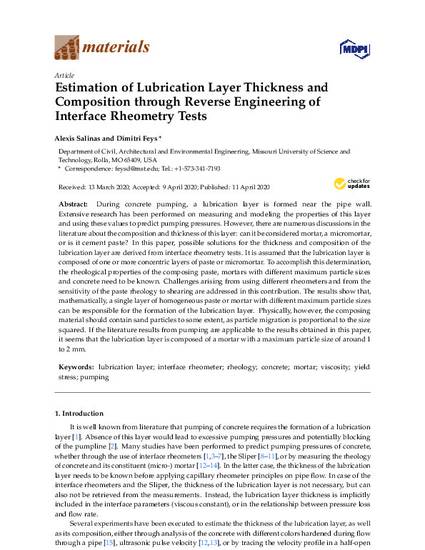
During concrete pumping, a lubrication layer is formed near the pipe wall. Extensive research has been performed on measuring and modeling the properties of this layer and using these values to predict pumping pressures. However, there are numerous discussions in the literature about the composition and thickness of this layer: can it be considered mortar, a micromortar, or is it cement paste? In this paper, possible solutions for the thickness and composition of the lubrication layer are derived from interface rheometry tests. It is assumed that the lubrication layer is composed of one or more concentric layers of paste or micromortar. To accomplish this determination, the rheological properties of the composing paste, mortars with different maximum particle sizes and concrete need to be known. Challenges arising from using different rheometers and from the sensitivity of the paste rheology to shearing are addressed in this contribution. The results show that, mathematically, a single layer of homogeneous paste or mortar with different maximum particle sizes can be responsible for the formation of the lubrication layer. Physically, however, the composing material should contain sand particles to some extent, as particle migration is proportional to the size squared. If the literature results from pumping are applicable to the results obtained in this paper, it seems that the lubrication layer is composed of a mortar with a maximum particle size of around 1 to 2 mm.
- Concrete,
- Interface rheometer,
- Lubrication layer,
- Mortar,
- Pumping,
- Rheology,
- Viscosity,
- Yield stress
Available at: http://works.bepress.com/dimitri-feys/27/
